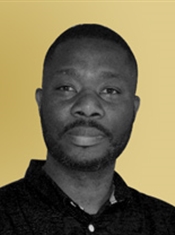
Madagascar ready to make history
SHEFFIELD (Julio Chitunda's African Message) - It would be a new chapter in the history of the youth African basketball if Madagascar - the hosts of the 2014 FIBA Africa U18 Championship - won the trophy.
Winning this continental trophy is the topic of the moment on the island.
The tournament is expected to gather 11 African teams - after the withdrawal of defending champions Senegal - in the capital city Antananarivo from 1 to 10 August.
It has been a long time since the Malagasy last finished on the podium of an African competition - when they won the Africa Championship for Women in 1970 to be precise - but this has not prevented them from dreaming, especially because of the dedicated passion for the game in the country.
In the past five years, Madagascar has hosted three major continental tournaments - AfroBasket Women 2009, AfroBasket 2011 as well as last year's FIBA Africa U16 Championship in which they finished fourth, the country's best result in the past four decades.
As a result, the upcoming FIBA Africa U18 Championship is being treated as a chance to make history in the basketball-mad country.
Social media platforms are enhancing the Malagasies basketball's passion as never seen before, like the tournament song's video clip produced by the musician duo of Lianah and Mam'Be.
At the helm of the islander team is Angel Manzano Polo, a Spanish coach who came to Madagascar as a tourist and met a local basketball legend who invited him to give a lecture. He has never disconnected from the country since.
Manzano has worked in Spain with Fuenlabrada and with Real Madrid's second team in the past, so I asked him to explain what is it like to be coaching in a country without real basketball tradition.
"Basketball means a lot to the people of this country," he replied and went on to explain why Madagascar should not be taken lightly.
"After football, basketball is clearly the number two sport in the Madagascar.
"(There are) Three factors why basketball became big in Madagascar: 1. Love for sports in general. 2. They adore basketball and 3. There is not much to do," he said.
When Madagascar steps out on the court to take on bigger and taller opponents, the physical aspect of a team whose tallest player measures 2.02m gets noticed.
Yet, Manzano Polo - who has been preparing his team for this tournament since last February - says one of his team's strongest attributes is its competitiveness.
"The team's level of mentality is excellent. The technical/tactical quality side is OK. Physically we are not a tall team, but we are good enough to compete," he offered.
"We are ready to make history. Our goal is to win the tournament.
"Judging by what I have been seen in the past few years, I feel that we can beat anybody. I just need to see what sort of players the other teams are bringing.
"The North African teams are always a threat in youth competitions, but this time around we are confident, especially because we are playing at home.
"The tournament venue has a 5,000 seating capacity, but in most cases, when any national team plays, the crowd is bigger than the maximum capacity," says Manzano Polo, who runs an Non-Governmental Organisation (NGO) aimed at having the youth play basketball and embrace education.
The group of islander players Manzano Polo is hoping to lead to new heights will consist of: Kevin Gilbert, Livio Rosto Ratianarivo, Saidie Ahmed Rakotoson, Briand De L'Or D'Ambaja Fiarasoa, Eddy Franco Ramanampisoa, Kiady Mahery Rabarijoelina, Hasina Ranaivomanana, Elly Randriamampionona, Orlando Rahajaniaina, Ricky Lobacky, Soloniaiana Tolojanahary Andriasy, Nantenaina Rabenandrasana, Leonel Rakotomiaramanana, Tsizanirina Tojo Zo Andrianarivelo, Ulric Moze, Kenny Stephen Randrianarivelo, Tsoa and Isaa Paolo Moralily.
Let the Malagasy begin their quest for glory in a tournament that marks the future stars of the African continent.
Julio Chitunda
FIBA
FIBA's columnists write on a wide range of topics relating to basketball that are of interest to them. The opinions they express are their own and in no way reflect those of FIBA.
FIBA takes no responsibility and gives no guarantees, warranties or representations, implied or otherwise, for the content or accuracy of the content and opinion expressed in the above article.

















